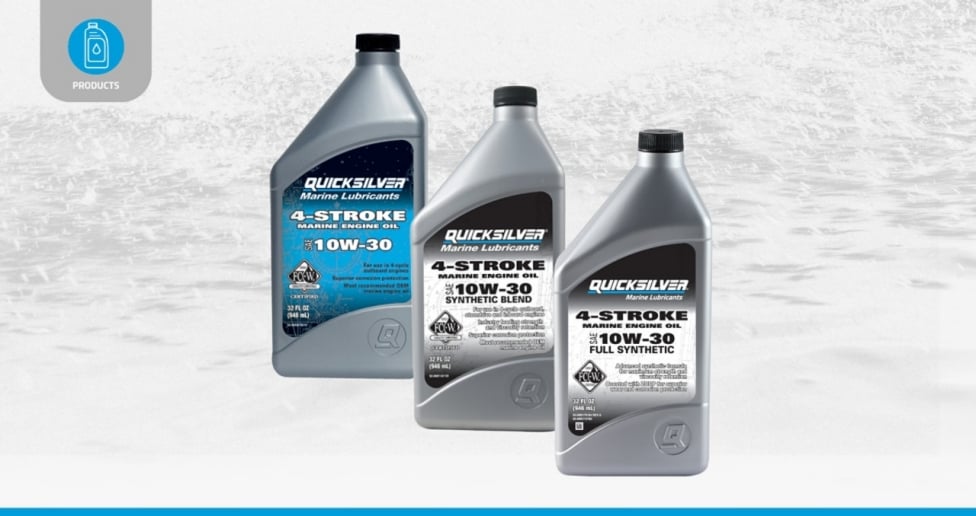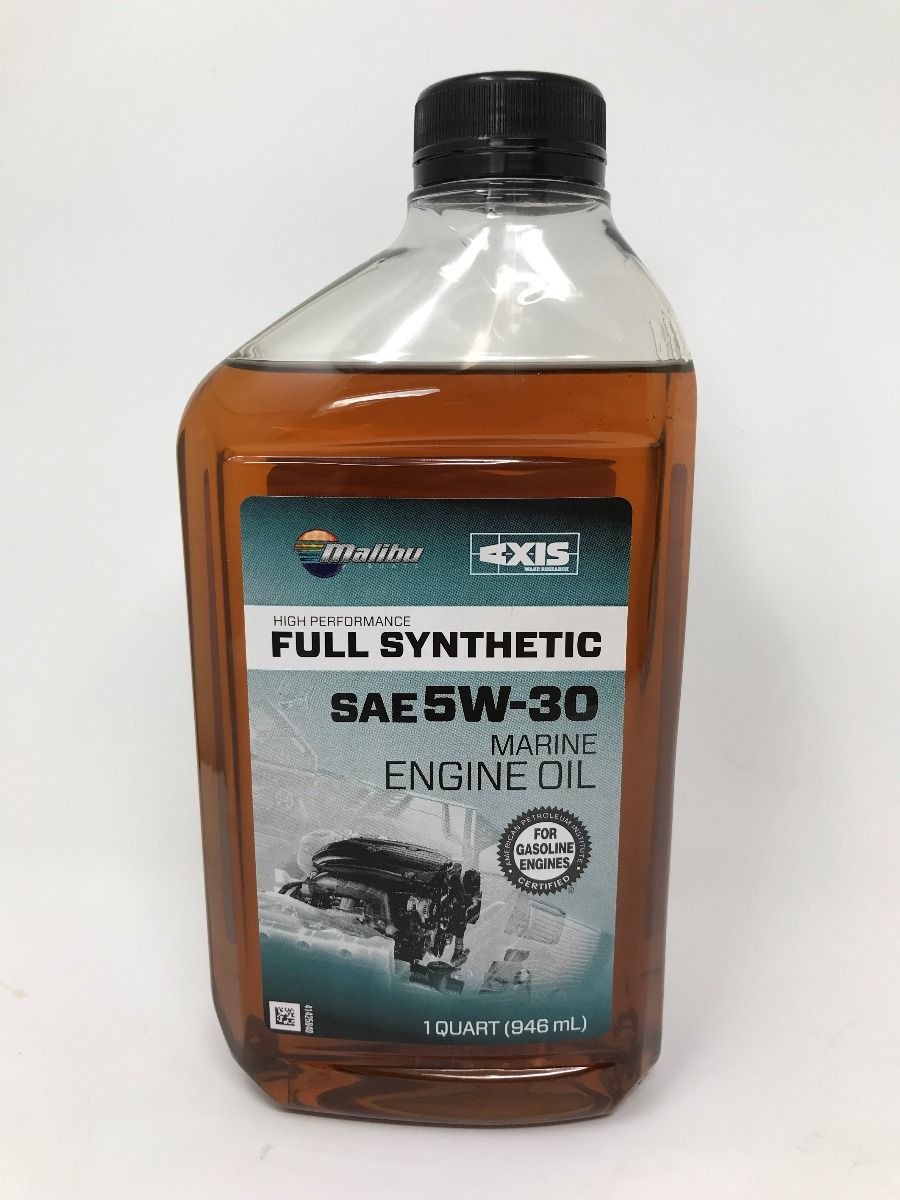Synthetic oil is better for boats due to its superior lubrication properties and longer lifespan. It provides enhanced protection.
When it comes to maintaining the engine of your boat, using the right type of oil is crucial for optimal performance and longevity. While conventional oils are suitable for some boats, synthetic oil offers benefits like improved engine cleanliness, reduced friction, and better performance in extreme temperatures.
Investing in synthetic oil may lead to fewer engine problems, smoother operation, and ultimately, a more enjoyable boating experience.
Introduction To Synthetic Oil In Marine Engines
Synthetic oil is a popular alternative to traditional oil for boat engines. It has superior qualities that make it last longer, reduce engine wear, and provide better performance. Synthetic oil is definitely a better option for boats, especially for those who use their vessels frequently or in harsh conditions.
Benefits Over Conventional Oil
When it comes to marine engines, choosing the right oil is crucial for optimal performance and longevity. Synthetic oil has gained popularity in recent years due to its numerous benefits over conventional oil.
- Enhanced engine protection
- Improved lubrication
- Extended oil change intervals
- Increased fuel efficiency
- Reduced engine wear and tear
Common Misconceptions
However, there are common misconceptions about synthetic oil that need to be addressed. Let’s debunk a few of them:
- Synthetic oil is too expensive: While synthetic oil may have a higher upfront cost, its extended oil change intervals and superior performance make it a cost-effective choice in the long run.
- Synthetic oil is only for high-performance boats: Synthetic oil is suitable for all types of marine engines, from recreational boats to high-performance vessels. It provides consistent protection and performance across different engine types.
- Synthetic oil causes leaks: This misconception stems from the belief that synthetic oil is thinner than conventional oil. However, modern synthetic oils are formulated to be compatible with engine seals and gaskets, ensuring a leak-free experience.
By understanding these misconceptions and the benefits of synthetic oil, boat owners can make an informed decision when it comes to selecting the right oil for their marine engines. Synthetic oil offers superior protection, improved performance, and peace of mind for boaters.
Key Advantages Of Synthetic Oil For Boats
Enhanced Engine Performance
Synthetic oil enhances the performance of boat engines due to its superior lubrication properties, reducing friction and wear.
Longer Oil Change Intervals
Boat owners can enjoy extended oil change intervals with synthetic oil, saving time and money on maintenance.
Superior Protection Under Extreme Conditions
Synthetic oil provides exceptional protection for boat engines, even in harsh marine environments and high temperatures.
Comparative Analysis: Synthetic Vs. Conventional Oil
Comparative Analysis: Synthetic vs. Conventional Oil
Chemical Structure Differences
Synthetic oil is formulated with uniform molecules, reducing friction and providing better protection. Conventional oil, on the other hand, contains irregular molecules, resulting in higher friction and less efficient lubrication.
Performance In Varying Temperatures
Synthetic oil maintains consistent viscosity across a wide temperature range, ensuring optimal engine protection in both extreme cold and heat. Conventional oil, however, may thicken in cold temperatures and thin out in high heat, leading to inadequate lubrication.
Impact On Engine Longevity
Synthetic oil’s superior lubricating properties enhance engine longevity by reducing wear and tear, while conventional oil may not offer the same level of protection, potentially leading to premature engine breakdown.

Credit: www.boats.com
Environmental Considerations
When it comes to environmental considerations, it’s essential to weigh the impact of synthetic oil on our water bodies and ecosystems. Let’s delve into the specific aspects that make synthetic oil a better choice for boats from an environmental perspective.
Biodegradability Of Synthetic Oil
Synthetic oils generally exhibit higher biodegradability compared to conventional oils. This means that they can break down more easily in the environment, reducing the risk of long-term contamination of water bodies. As a result, the use of synthetic oil in boats can contribute to the preservation of aquatic ecosystems.
Emission Reduction
One of the key environmental benefits of synthetic oil is its potential to reduce emissions from boat engines. By providing superior lubrication and engine protection, synthetic oils can help minimize harmful exhaust emissions, thereby limiting the impact on air quality and the atmosphere. This is particularly important for maintaining the health of marine environments and the species that inhabit them.
Case Studies: Real-world Performance
Explore real-world performance through case studies to determine if synthetic oil is superior for boats. Delve into practical experiences and results to uncover the benefits and efficiency of using synthetic oil in marine engines.
Sport Fishing Vessels
Synthetic oil in sport fishing boats improves engine longevity and fuel efficiency.
Boat owners report fewer breakdowns and smoother operation with synthetic oil.
Recreational Boating
Synthetic oil offers enhanced protection for recreational boat engines.
It reduces wear and tear, leading to longer engine life and better performance.
High-performance Racing Boats
Synthetic oil is the go-to choice for high-performance racing boats.
It withstands extreme conditions and provides optimal engine performance.

Credit: www.quicksilver-products.com
Expert Opinions On Synthetic Oil Use In Boats
Experts have varying opinions on whether synthetic oil is better for boats than conventional oil. Some argue that synthetic oil provides superior protection and performance, while others believe that it’s unnecessary and more expensive. Ultimately, the decision depends on factors such as the engine, usage, and manufacturer recommendations.
When it comes to using synthetic oil in boats, it’s essential to consider the expert opinions of marine engineers and boat manufacturers. They have extensive knowledge and experience in the industry and can provide valuable insights on the benefits and drawbacks of using synthetic oil in boats.
Marine Engineers’ Insights
Marine engineers are professionals who design, build, and maintain boats and their engines. They are responsible for ensuring that boats are safe, reliable, and efficient. According to marine engineers, synthetic oil offers several advantages over conventional oil.
- Synthetic oil provides better protection against engine wear and tear, which can extend the life of the engine.
- Synthetic oil has better resistance to high temperatures and can withstand extreme conditions, making it ideal for boats that operate in harsh environments.
- Synthetic oil has better fuel efficiency, which can result in cost savings over time.
However, marine engineers also caution that not all boats are compatible with synthetic oil. Some older engines may not be able to handle the higher viscosity of synthetic oil, and using it could cause damage to the engine.
Boat Manufacturers’ Recommendations
Boat manufacturers are another valuable source of information when it comes to synthetic oil use in boats. They have extensive knowledge of the boats they produce and can provide recommendations on the best oil to use. According to most boat manufacturers, synthetic oil is a suitable choice for most modern boats. They recommend using synthetic oil for its superior performance, extended engine life, and better fuel efficiency. However, they also advise boat owners to check their boat’s owner’s manual to ensure that synthetic oil is compatible with their specific boat and engine. In conclusion, the expert opinions of marine engineers and boat manufacturers suggest that synthetic oil is better for boats. However, it’s important to consider each boat’s specific requirements and compatibility with synthetic oil before making the switch.
Common Myths Debunked
Synthetic Oil Causes Leaks
Contrary to popular belief, synthetic oil does not cause leaks.
It is compatible with seals and gaskets in boat engines.
Too Expensive For The Benefits
Synthetic oil offers superior protection and longevity for boat engines.
The initial cost is offset by longer oil change intervals.
Choosing The Right Synthetic Oil For Your Boat
If you are looking for the best synthetic oil for your boat, it is important to consider various factors before making a purchase. Synthetic oils offer many benefits over conventional oils, such as better performance, improved fuel economy, and extended engine life. However, not all synthetic oils are created equal, and choosing the right one for your boat can be a daunting task. In this article, we will discuss some important factors to consider when choosing the right synthetic oil for your boat.
Viscosity And Grade Considerations
Choosing the right viscosity and grade is essential when selecting the best synthetic oil for your boat. The viscosity of an oil refers to its resistance to flow, and it is usually measured at 100°C. The grade of an oil, on the other hand, refers to its performance level and is usually indicated by a two-letter code, such as API SN or ILSAC GF-5.
When selecting the right viscosity and grade for your boat, it is important to consider the manufacturer’s recommendations. These can be found in the owner’s manual or on the engine oil cap. Using the wrong viscosity or grade can cause engine damage and reduce performance. It is also important to note that different engines may require different viscosity and grade levels, so it is important to double-check before making a purchase.
Brand Comparisons And Reviews
There are many different brands of synthetic oil available on the market, and each one claims to offer the best performance and protection. However, not all brands are created equal, and some may be more suitable for your boat than others. It is important to do your research and read reviews from other boat owners before making a purchase.
When comparing different brands of synthetic oil, it is important to look for key features such as viscosity, grade, performance, and price. You can also look for certifications from organizations such as the American Petroleum Institute (API) or the International Lubricant Standardization and Approval Committee (ILSAC).
Read More: Does Synthetic Oil Extend Engine Life?
In Conclusion
Choosing the right synthetic oil for your boat is essential for ensuring optimal performance and engine life. By considering factors such as viscosity and grade, and comparing different brands and reviews, you can make an informed decision and choose the best synthetic oil for your boat. Remember to always follow the manufacturer’s recommendations and perform regular oil changes to keep your boat running smoothly.

Credit: www.bakesonline.com
Conclusion
Synthetic oil offers numerous benefits for boats. Its superior lubrication properties, resistance to high temperatures, and extended engine life make it a top choice for boat owners. With improved fuel efficiency and reduced maintenance requirements, synthetic oil can enhance the overall performance and longevity of marine engines.
As an environmentally friendly option, synthetic oil also helps to minimize pollution and protect the ecosystem. Consider switching to synthetic oil for your boat to enjoy these advantages and ensure a smooth sailing experience.
